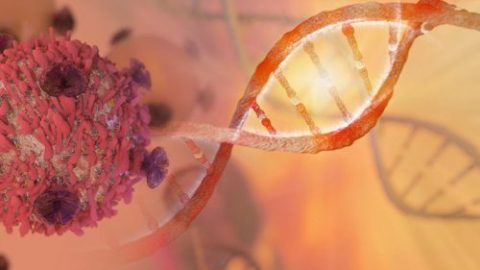
How CEOs respond to a cancer diagnosis
In a recent contribution entitled This Doctor Believes Entrepreneurs Manage a Cancer Diagnosis Better Than Most I responded with the following. It is the substance of a much larger discussion we should have. “I have a diagnosis of cancer.” Now what?
Cancer Risk Benefit Management
All CEOs make decisions based on only 75% of the evidence. You never have 100% of the evidence. What you have stated here is that CEOs become active and not passive participants. The greatest danger of all cancer therapies is the infantilization of the patient. “Just follow instructions.” “Don’t ask too many questions.” All cancer therapies are algorithm and guideline driven.
In more than 12 years as a cancer surgeon, I have noticed that what defines these patients is their ability to compartmentalize and marshal resources forward.
They quickly clear their heads, get the facts and make decisions.
Ask questions. Never assume. Consider risk-benefit ratios of all therapies. Seek out integrative sources of cancer information. All statistical probabilities are population-based. And, therefore, frequently misleading. You are an individual with your own set of probabilities. No physician should ever tell you you have x number of months to live.
I know something of which I speak. I have lost 2 dear siblings to cancer in the last 2 years. So this becomes a personal note. Take charge. Move into the driver seat. The referenced article is highly revealing. All these CEOs make their cancer decisions dispassionately. As if it were another person or a relative they were advising. Pick a point far in the future. Visualize it as your goal. “I want to see my grandson or my granddaughter graduate from college.”
Tell me what you think.
2 thoughts on “How CEOs respond to a cancer diagnosis”
Thank you so kindly for your comments. This is an area of intense interest and controversy. There is almost certainly no evidence that re-starting hormonal replacement therapy 3 years after the initiation of breast cancer therapy has a negative or detrimental effect. So the question remains, when can hormone replacement therapy be re-initiated, if at all? 3 months? One year? 3 years? Never?
In the 1970s breast cancer was treated with high dose estrogen. Not estrogen blockade. Unfortunately, they used the wrong estrogen – DES — which had its own significant bad outcomes. Uterine cancer in daughters.
Just recently Stanford has started experimentally treating prostate cancer with cyclical high dose testosterone as I have argued for over 20 years.
So there is no easy answer. But I would encourage you to contact me personally for further advice. Contact me at [email protected]
I found your article very interesting. I’m 65, and just recently was diagnosed with breast cancer, I had two lymph nodes taken out, a lumpectomy I am now going through radiation.
I have been doing yoga since I was 16 and have kept my weight the same for most of my life.
I have been on bioidentical hormones for 15 years.
My Doctor at Stanford, has told me to stop taking my hormones I am having a terrible time stopping, very emotional,and afraid of how it will effect my skin as well, at 65 I feel and look many years younger, I believe my hormone therapy and healthy lifestyle has contributed to this.
My question to you is there an alternative to hormone replacement? I have positive hormone receptors, but am feeling so uncomfortable feel the need to go back on my hormone/testosterone replacement. If you could give me some advice, it would be greatly appreciated! I would love to make an appointment at your clinic.
Thankyou,
Susan